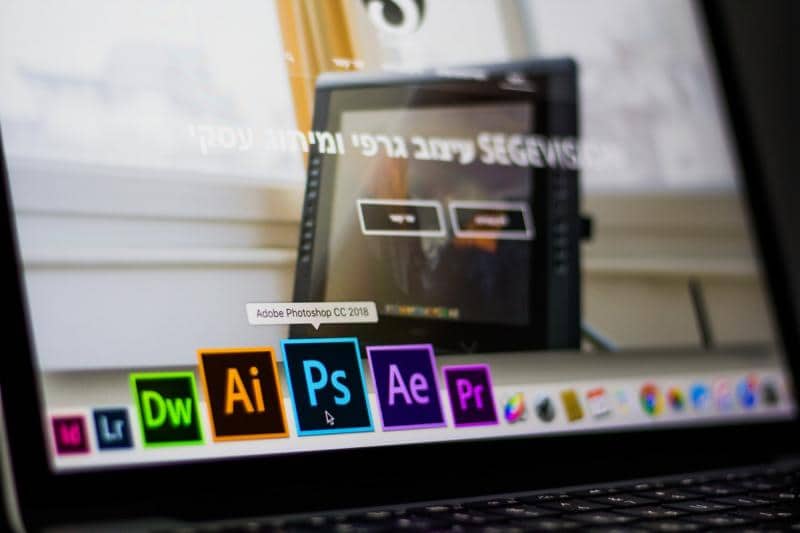Ever wonder what exactly you need to have or do before becoming a professional photographer? Here is our photography business checklist!
Starting ANY business can be a bit overwhelming! There is a range of things you’ll need to consider when starting in the world of professional photography. Here is our comprehensive list of considerations you should look at before leaping!
Start-Up
- Decide on a business name and write out a business plan. It pays to have a plan that you can refer back to at a later time. Knowing your direction and goals is ALWAYS a great way to stay on track and to stay motivated!
- Buy the gear you’ll need based on a budget (you can start with a camera body and one lens and 2-3 SD cards): external hard drives and a cloud-based backup (e.g., Backblaze). It’s straightforward to get caught up on all the options on the market, but in reality, you need ONE lens and the absolute basics. Make sure this is something you’ll want to continue with!
- Decide what types of photography you will offer (weddings, engagements, family portraits, headshots, landscape, business, social media, etc.! Start taking pictures to build a portfolio by offering sessions to family and friends! This is a great way to get word of mouth going, so make sure to knock their socks off!
- Decide whether to register as a sole proprietor, or LLC (research licenses or permits for your city and state).
- Understand your editing needs. You can sign up with Lightroom and Photoshop for editing ($10/month plan).
- Learn the basics of Lightroom. Lightroom was designed for photographers and is much more suited to our needs.
- Learn the basics of Photoshop. Photoshop is great for those more specific edits, like changing the background color, adding a sky overlay, or removing heavy objects from the background.

How much does a photography business cost?
While this isn’t a checklist item, we are always being asked how much it will cost to start a photography business from scratch! This will range GREATLY depending on your budget, as you can purchase a NEW full-frame camera (roughly $3000), or decide on a used crop-sensor camera, which could set you back only $500!
I would venture to guess that if you’re a negotiator, you could easily start your business for less than $1000.
The start-up costs will vary, as some photography businesses require less of an investment, like regular portraits, while a budding wedding photographer may spend more initially.
Website
So people will say that a site isn’t vital. While this is technically true, it’s a nice place to showcase your work and your personal space on the internet that YOU can control.
This means you’re not at the mercy of algorithms and someone trying to charge you extra for advertising. It’s also a professional. To read more about why you should have a website, check out this article!

- Decide on a hosting company and platform. These range from very affordable to around $300/year depending on what you need. Check out Bluehost, GoDaddy, etc.
- Purchase domain name with accompanying email addresses. Make sure that your website domain and email address are PROFESSIONAL. You don’t want to use a personal address like CuteSurferGirl@notprofessional.com.
- Build a website with the following information: (Location, “About Me” page, a gallery of 20-25 photos, Pricing (if in doubt, use “Starting at” pricing), Contact Page with your email and phone number). Link your website to Facebook and Instagram! Check out this tutorial on the six essential pieces of information that every website should contain! Make sure to include a blog post or two to increase eyes on your site.
Pricing
Set up pricing for sessions. Options can include:
1. One set price for all sessions. This makes things easy and very straightforward for both you and your clients! Essentially, each 1-hour session will cost $X.
2. Three-tier packages. In this case, you’ll want to structure them from highest to lowest!
3. Session fee, plus the cost of digital images/products.
4. In-person sales.
- Research the market in your area if you’re not sure on how to price yourself. What are others charging about what they are offering? Just get a ballpark, but DON’T get down on yourself when you see who you’re competing against! Everyone has their distinct styles, and with a lot of work, EVERYONE can become profitable!
- Decide if you will offer products (such as prints, canvases, albums)? Remember, in Shootproof and Pixieset, there are built-in pricing options that allow you to link professional labs and offer products THROUGH the gallery. You can have your clients order through them and never have to handle the actual product! It’s a no-brainer!

Marketing
- Start a Facebook page. This takes about 10 minutes!
- Start an Instagram account. Instagram is a great way to showcase your images and another means of connecting with potential clients.
- Outline your ideal client. The best way to do this is to give them a name. WHO are you talking to in your ads, on your website, and throughout your work?! Moms, entrepreneurs, business professionals, teens?
- Design a logo.
- Decide on if you want a watermark (essentially a digital signature) to put on your final images.
- Design a welcome guid/preparation guide, pricing guide, and style guide to send to clients.
- Design and print business cards.
- Print referral cards. You can offer discounts to people who refer new clients. For example, if an existing client tells a friend about you (and they also book you for a session), both clients will get $20 off their sessions!
- Ask yourself if you plan to do any email marketing.

Image Delivery to Clients
- Set up a gallery system to deliver images (Shootproof, Pixieset, etc.). Here’s a tutorial if you want to see a full review!
- Will you offer prints? If yes, set up a pricing sheet to link to a professional lab. (Get sample prints from a professional lab to ensure you know what the quality is!)
- USB, while still an option, is growing less popular now that there are online cloud options! Evaluate your needs and make a decision!
Behind the Scenes
- Talk to an accountant if necessary.
- Pay taxes. Please make sure that you account for taxes during the year. Not properly filing with the tax authority can lead to significant problems down the road, and will ultimately affect the way you run your business.
- File all essential state paperwork if you choose to register as an LLC (this will vary by your state and county).
- Get liability insurance! (For yourself and your equipment – Public Liability and Professional Indemnity.) This is essential just in case something happens at a session, for example, someone falls and hurts themselves!
- Keep track of accounts (income and expenses). Make sure to keep all receipts for business transactions, including travel, equipment, props, hardware, software, courses, plus household bills on utilities if working from home.
Whatever you do, DON’T FREAK OUT. While this may seem like a lot to consider, it’s manageable in bite-size pieces. Remember, each thing alone is really a simple task, and only when you put it all together do you have a full-blown business! Let me know if you have any questions in the comments!







